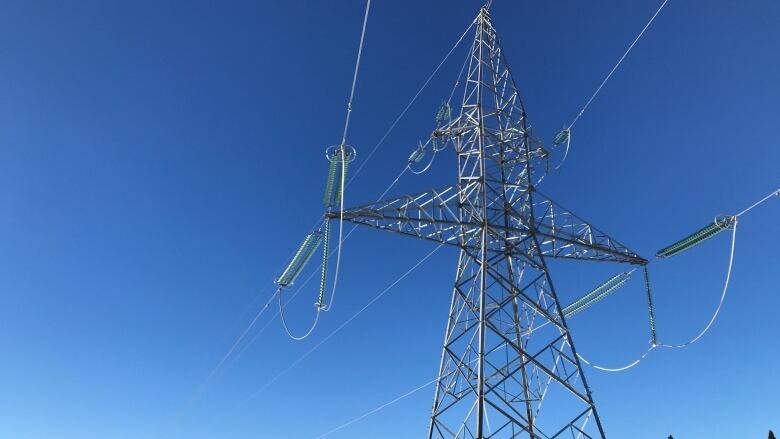N.L. Hydro confirms Muskrat Falls schedule 'not achievable,' with completion date now uncertain
Ongoing glitches with Labrador-Island Link software means project won't be completed by Nov. 26

The plan to complete the troubled Muskrat Falls hydroelectric project by Nov. 26 is no longer possible because of ongoing problems with its specialized computer software, and N.L. Hydro says it's waiting on word from one of its contractors before setting a new target date for completion.
That means it's unclear whether Muskrat Falls electricity will be available for Newfoundland's power grid this winter, though N.L. Hydro officials say the oil-fired power generating station at Holyrood is available to meet the demand, with the plan to keep the aging and carbon-emitting facility in service until 2023.
In an Oct. 7 letter to Newfoundland and Labrador's Public Utilities Board, N.L. Hydro confirmed that the long-established completion date of Nov. 26 is "not achievable."
The delay is being blamed on GE Canada, whichcontinues to have problemswith the computer softwarerequired to operate the transmission line from Muskrat Falls to the Avalon Peninsula.
It's known as the control and protection software, and it's a critical component of the Labrador-Island Link, the 1,100-kilometre high-voltage direct-currenttransmission line from central Labrador to Soldiers Pond on the Avalon Peninsula.
GE Canada has been developing and testing the software, which is needed to operate the two power lines that will transmit up to 824 megawatts of electricity to Newfoundland.
Repeated deadlines for completion of the software have come and gone because of ongoing software bugs, and now N.L Hydro is waiting for a new schedule from GE as to when the software will be ready.
"A revised date will be determined once a new timeline is received from GE," a spokesperson for N.L. Hydro wrote in an email to CBC News.
CBC News has requested an interview with N.L. Hydro president and CEO Jennifer Williams.
It's not known what this latest delay means for the cost of the project, which has grown to $13.1 billion when financing and interest charges are included. When the project was sanctioned in 2012, the price tag was estimated at $7.4 billion.
Construction on the Labrador-Island Link, which includes a subsea cable across the Strait of Belle Isle, was completed in 2017, and limited amounts of electricity began flowing over the line a year later.
However, a confluence of problems have hampered the transmission system, ranging from synchronous condensers at Soldiers Pond that vibrated and jammed, to the replacement of hundreds of defective fibreglass insulator beams at converter stations in Muskrat Falls and Soldiers Pond.
N.L. Hydro officials say the completion schedule for the power generating station at Muskrat Falls is not affected by this latest setback, with all four generating units expected to be completed by a company called AndritzinNovember.
It's the latest setback for a project that has dominated public debate in the province for more than a decade, and was the subject of a public inquiry that deemed Muskrat a misguided project.
The government-owned energy corporation that spearheaded Muskrat, Nalcor, is being folded into N.L. Hydro, and will disappear completely once all legal and legislative changes are complete.












_(720p).jpg)


 OFFICIAL HD MUSIC VIDEO.jpg)
.jpg)



























































































